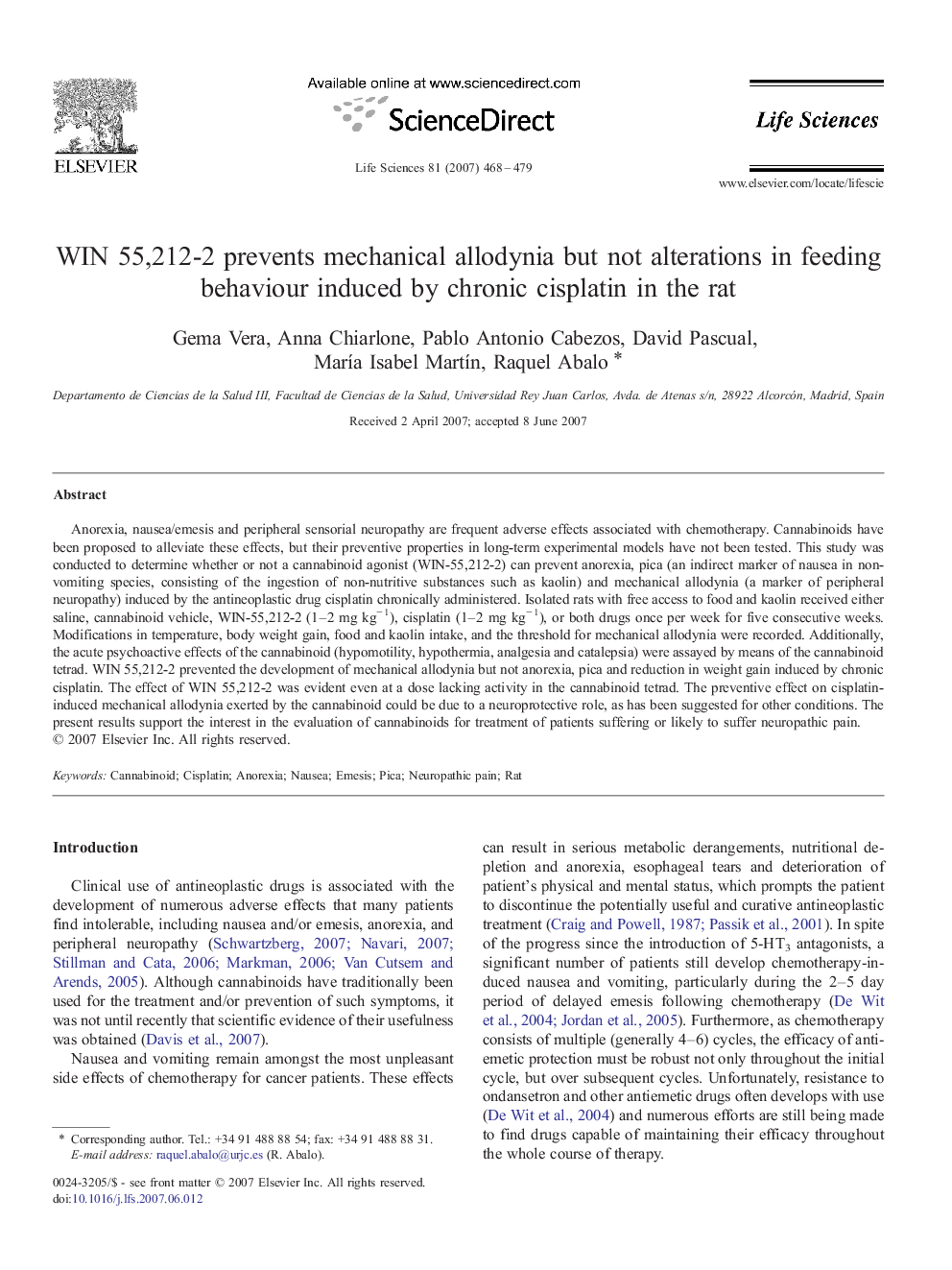| Article ID | Journal | Published Year | Pages | File Type |
|---|---|---|---|---|
| 2553338 | Life Sciences | 2007 | 12 Pages |
Anorexia, nausea/emesis and peripheral sensorial neuropathy are frequent adverse effects associated with chemotherapy. Cannabinoids have been proposed to alleviate these effects, but their preventive properties in long-term experimental models have not been tested. This study was conducted to determine whether or not a cannabinoid agonist (WIN-55,212-2) can prevent anorexia, pica (an indirect marker of nausea in non-vomiting species, consisting of the ingestion of non-nutritive substances such as kaolin) and mechanical allodynia (a marker of peripheral neuropathy) induced by the antineoplastic drug cisplatin chronically administered. Isolated rats with free access to food and kaolin received either saline, cannabinoid vehicle, WIN-55,212-2 (1–2 mg kg− 1), cisplatin (1–2 mg kg− 1), or both drugs once per week for five consecutive weeks. Modifications in temperature, body weight gain, food and kaolin intake, and the threshold for mechanical allodynia were recorded. Additionally, the acute psychoactive effects of the cannabinoid (hypomotility, hypothermia, analgesia and catalepsia) were assayed by means of the cannabinoid tetrad. WIN 55,212-2 prevented the development of mechanical allodynia but not anorexia, pica and reduction in weight gain induced by chronic cisplatin. The effect of WIN 55,212-2 was evident even at a dose lacking activity in the cannabinoid tetrad. The preventive effect on cisplatin-induced mechanical allodynia exerted by the cannabinoid could be due to a neuroprotective role, as has been suggested for other conditions. The present results support the interest in the evaluation of cannabinoids for treatment of patients suffering or likely to suffer neuropathic pain.
